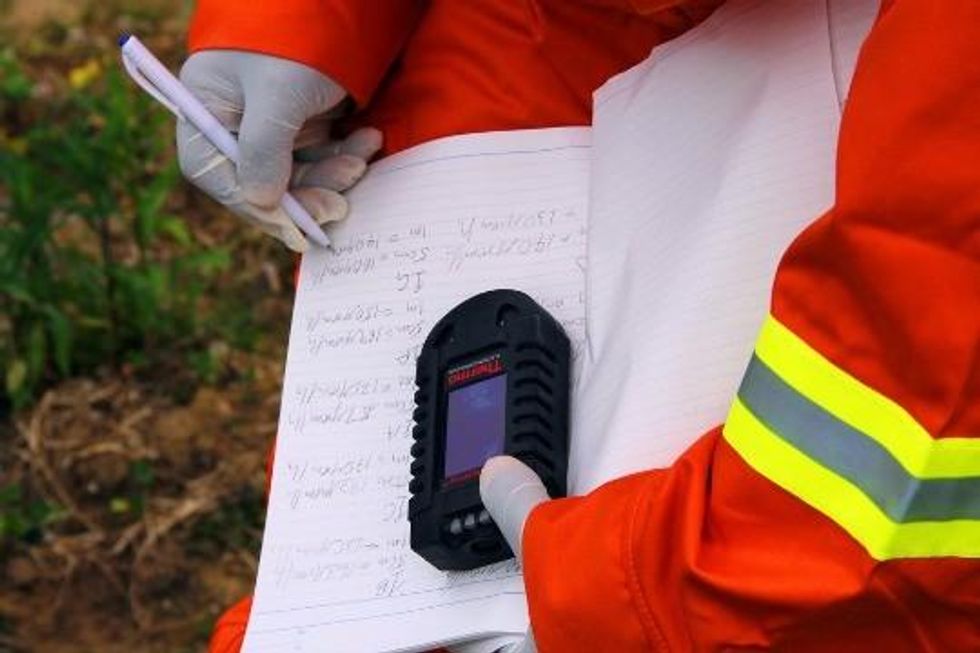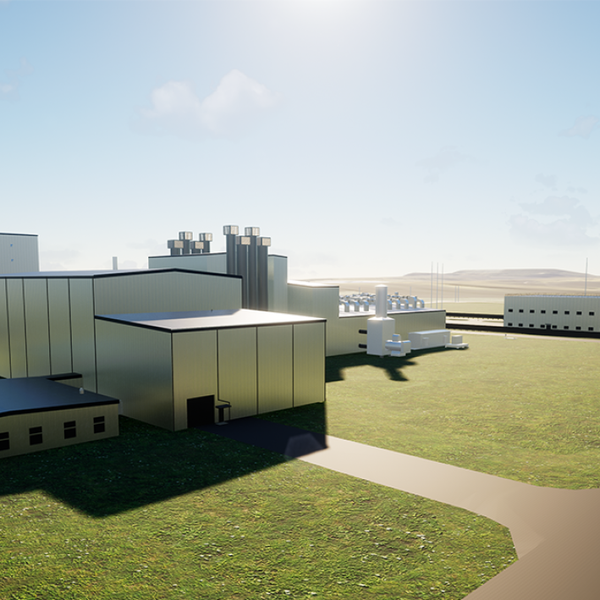Is Japanese Government 'Squelching' Efforts to Research Fukushima Radiation?
New York Times reports on culture of intimidation among researchers

Speaking both with top university researchers in Japan and international scientists who have traveled to study the effects of the nuclear fallout, the New York Times reports that many attempts to study the radiation have been obstructed by lack of funding or support. In some cases, professors were told explicitly not to measure radiation in the surrounding prefectures and to steer clear of data that might cause public "concern."
Timothy A. Mousseau, a professor of biological sciences at the University of South Carolina who has written widely on Chernobyl, told the Times that his multiple research trips to the country were "difficult," with Japanese colleagues dropping out of a joint research paper because they "could not risk association with his findings."
"It's pretty clear that there is self-censorship or professors have been warned by their superiors that they must be very, very careful," he said. He added, however, that the "more insidious censorship" is the lack of funding at a national level for these kinds of studies.
"They're putting trillions of yen into moving dirt around and almost nothing into environmental assessment," he said, referring to the ongoing effort to remove radioactive soil from the surrounding area.
"Getting involved in this sort of research is dangerous politically," added Joji Otaki, a biologist at Japan's Ryukyu University who has relied on private donations and crowd-funding for his work.
Following publication of the article, the New York Times printed this corrective statement: "An earlier version of the headline with this article misstated the actions of the Japanese government. There are deep differences over how to determine the health impact of the Fukushima disaster. The authorities are not 'squelching' efforts to measure the effects of the accident."
_____________________
An Urgent Message From Our Co-Founder
Dear Common Dreams reader, The U.S. is on a fast track to authoritarianism like nothing I've ever seen. Meanwhile, corporate news outlets are utterly capitulating to Trump, twisting their coverage to avoid drawing his ire while lining up to stuff cash in his pockets. That's why I believe that Common Dreams is doing the best and most consequential reporting that we've ever done. Our small but mighty team is a progressive reporting powerhouse, covering the news every day that the corporate media never will. Our mission has always been simple: To inform. To inspire. And to ignite change for the common good. Now here's the key piece that I want all our readers to understand: None of this would be possible without your financial support. That's not just some fundraising cliche. It's the absolute and literal truth. We don't accept corporate advertising and never will. We don't have a paywall because we don't think people should be blocked from critical news based on their ability to pay. Everything we do is funded by the donations of readers like you. Will you donate now to help power the nonprofit, independent reporting of Common Dreams? Thank you for being a vital member of our community. Together, we can keep independent journalism alive when it’s needed most. - Craig Brown, Co-founder |

Speaking both with top university researchers in Japan and international scientists who have traveled to study the effects of the nuclear fallout, the New York Times reports that many attempts to study the radiation have been obstructed by lack of funding or support. In some cases, professors were told explicitly not to measure radiation in the surrounding prefectures and to steer clear of data that might cause public "concern."
Timothy A. Mousseau, a professor of biological sciences at the University of South Carolina who has written widely on Chernobyl, told the Times that his multiple research trips to the country were "difficult," with Japanese colleagues dropping out of a joint research paper because they "could not risk association with his findings."
"It's pretty clear that there is self-censorship or professors have been warned by their superiors that they must be very, very careful," he said. He added, however, that the "more insidious censorship" is the lack of funding at a national level for these kinds of studies.
"They're putting trillions of yen into moving dirt around and almost nothing into environmental assessment," he said, referring to the ongoing effort to remove radioactive soil from the surrounding area.
"Getting involved in this sort of research is dangerous politically," added Joji Otaki, a biologist at Japan's Ryukyu University who has relied on private donations and crowd-funding for his work.
Following publication of the article, the New York Times printed this corrective statement: "An earlier version of the headline with this article misstated the actions of the Japanese government. There are deep differences over how to determine the health impact of the Fukushima disaster. The authorities are not 'squelching' efforts to measure the effects of the accident."
_____________________

Speaking both with top university researchers in Japan and international scientists who have traveled to study the effects of the nuclear fallout, the New York Times reports that many attempts to study the radiation have been obstructed by lack of funding or support. In some cases, professors were told explicitly not to measure radiation in the surrounding prefectures and to steer clear of data that might cause public "concern."
Timothy A. Mousseau, a professor of biological sciences at the University of South Carolina who has written widely on Chernobyl, told the Times that his multiple research trips to the country were "difficult," with Japanese colleagues dropping out of a joint research paper because they "could not risk association with his findings."
"It's pretty clear that there is self-censorship or professors have been warned by their superiors that they must be very, very careful," he said. He added, however, that the "more insidious censorship" is the lack of funding at a national level for these kinds of studies.
"They're putting trillions of yen into moving dirt around and almost nothing into environmental assessment," he said, referring to the ongoing effort to remove radioactive soil from the surrounding area.
"Getting involved in this sort of research is dangerous politically," added Joji Otaki, a biologist at Japan's Ryukyu University who has relied on private donations and crowd-funding for his work.
Following publication of the article, the New York Times printed this corrective statement: "An earlier version of the headline with this article misstated the actions of the Japanese government. There are deep differences over how to determine the health impact of the Fukushima disaster. The authorities are not 'squelching' efforts to measure the effects of the accident."
_____________________

